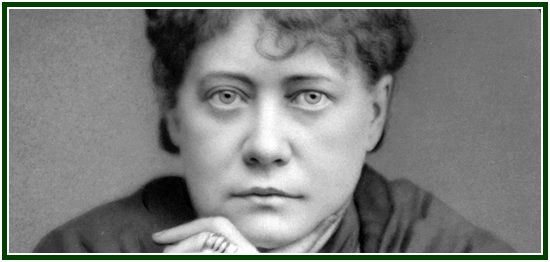
How to Gain Time and Save a
Remarkable Amount of Vital Force
Carlos Cardoso Aveline

Partial view of a painting by Russian artist Ari Roussimoff
* “When you are 20 years old, if you are not a revolutionary, you have no heart”, says a popular saying. “But at 50, if you are not a conservative, you have no brain.”
* In other words, experience shows that good intentions are not enough. Yet it is an essential fact that altruism must shine forth in youth. A selfish youth would close the door of the future before society.
* Original theosophy eliminates the conflict between heart and brain. Authentic esoteric philosophy teaches us that life is a series of tests and was never meant to be a comfortable road. It shows the contrasts of human soul indicating how to transcend them with realism.
* Compassion for the suffering of the world must be expressed through constructive, not destructive, acts. The discernment of a mature age is not enough: it needs to be guided by goodwill.
* Life invites us to think for ourselves, with a sense of equilibrium and discernment. There is no essential difference between believing everything and doubting everything, since in both cases the brain has stopped working.
* Esoteric philosophy advises its students to avoid extremes in the various aspects of life. “Never eat if you are not hungry”, says Hector Durville. “Leave the table as soon as you have eaten enough, because it is not the quantity of food that you need, but quality.” [1] Gluttony leads no one to heaven. Self-control and calm attention, however, are among the best friends of every student of philosophy. A degree of austerity is often helpful.
* Life is made up of undulatory movements. Everything has its right moment. Balance is the Law: after a great effort, a deep rest. Foolish people pretend to themselves that they know everything. Sage is he who knows how to learn. [2]
* Perhaps most of the obstacles and unpleasant circumstances that surround us are but ways through which Life is trying to teach us something. Are we paying attention?
* On a collective level, the most uncomfortable challenges faced by any country are nothing but lessons that the entire community needs to learn – or, at least, the more lucid sectors of it.
* In order to avoid wasting energy, the pilgrim must know himself and make sure his efforts are coherent, so that they do not cancel each other, but have mutually complementary effects.
* When our different actions – physical, mental, and emotional – all point to the same direction, we gain time and save a remarkable amount of vital force. The same is true of collective life, as in the marriage, the family, at work or in a theosophical lodge. Countries are not exceptions: everywhere, any time, unity and mutual help make people strong.
* Repentance can be defined as “the process of identification, detachment from and correction of our own mistakes”. From a spiritual point of view, repentance requires a wide horizon and an expanded notion of “self”, or “being”, so that the pilgrim transcends the narrow interests of his own lower self.
* Rabbi Joseph B. Soloveitchik says: “Repentance is not a function of a single, decisive act, but grows and gains in size slowly and gradually, until the penitent undergoes a complete metamorphosis, and then, after becoming a new person, and only then, does repentance take place.” (“On Repentance”, Rabbi Joseph B. Soloveitchik, Maggid Books, Jerusalem, Israel, 2017, 245 pp., see p. 21.)
NOTES:
[1] “Magnétisme Personnel”, Hector Durville, Hector & Henri Durville, Éditeurs, Paris, 1918, 526 pp., see p. 195.
[2] However, wise people make foolish mistakes, sometimes, and every fool has in himself the seeds of his future wisdom.
000
The article “Thoughts Along the Road – 76” was published as an independent item in the websites of the Independent Lodge of Theosophists on 11 July 2024. An initial version of it is part of the November 2021 edition of “The Aquarian Theosophist”, pp. 6-7.
000
Read more:
* Other articles by Carlos Cardoso Aveline.
* Some writings by Jean des Vignes Rouges.
* How to Build a Theosophical Lodge (by a Master of the Wisdom).
000
Print the texts you study from the websites of the Independent Lodge. Reading on paper helps us attain a deeper view of philosophical texts. When studying a printed text, the reader can underline sentences and make handwritten comments in the margins that link the ideas to his personal reality.
000

Helena Blavatsky (photo) wrote these words: “Deserve, then desire”.
000